I am using Log4j Http appender to send data to Splunk using mule cloudhub. During the build it thorws the error:
ERROR Appenders contains an invalid element or attribute Http
and I am not seeing the data in Splunk.
The error happens with Log4j Configuration:
<Http name="Splunktest" url="myurl" token="mytoken"
disableCertificateValidation="true"></Http>
During the maven build it is throwing the mentioned error. Mule runtime version 3.8.4
Did anyone else face the same error?
Entire Log4j for reference
<!--These are some of the loggers you can enable.
There are several more you can find in the documentation.
Besides this log4j configuration, you can also use Java VM environment variables
to enable other logs like network (-Djavax.net.debug=ssl or all) and
Garbage Collector (-XX:+PrintGC). These will be append to the console, so you will
see them in the mule_ee.log file. -->
<Appenders>
<RollingFile name="file" fileName="${sys:mule.home}${sys:file.separator}logs${sys:file.separator}splunk.log"
filePattern="${sys:mule.home}${sys:file.separator}logs${sys:file.separator}splunk-%i.log">
<PatternLayout pattern="%d [%t] %-5p %c - %m%n" />
<SizeBasedTriggeringPolicy size="10 MB" />
<DefaultRolloverStrategy max="10"/>
</RollingFile>
<Http name="Splunktest" url="myurl" token="mytoken" disableCertificateValidation="true"></Http>
</Appenders>
<Loggers>
<!-- Http Logger shows wire traffic on DEBUG -->
<AsyncLogger name="org.mule.module.http.internal.HttpMessageLogger" level="WARN"/>
<!-- JDBC Logger shows queries and parameters values on DEBUG -->
<AsyncLogger name="com.mulesoft.mule.transport.jdbc" level="WARN"/>
<!-- CXF is used heavily by Mule for web services -->
<AsyncLogger name="org.apache.cxf" level="WARN"/>
<!-- Apache Commons tend to make a lot of noise which can clutter the log-->
<AsyncLogger name="org.apache" level="WARN"/>
<!-- Reduce startup noise -->
<AsyncLogger name="org.springframework.beans.factory" level="WARN"/>
<!-- Mule classes -->
<AsyncLogger name="org.mule" level="INFO"/>
<AsyncLogger name="com.mulesoft" level="INFO"/>
<!-- Reduce DM verbosity -->
<AsyncLogger name="org.jetel" level="WARN"/>
<AsyncLogger name="Tracking" level="WARN"/>
<AsyncRoot level="INFO">
<AppenderRef ref="file" />
</AsyncRoot>
<AsyncLogger name="splunk.logger" level="INFO" >
<AppenderRef ref="Splunktest" />
</AsyncLogger>
</Loggers>

